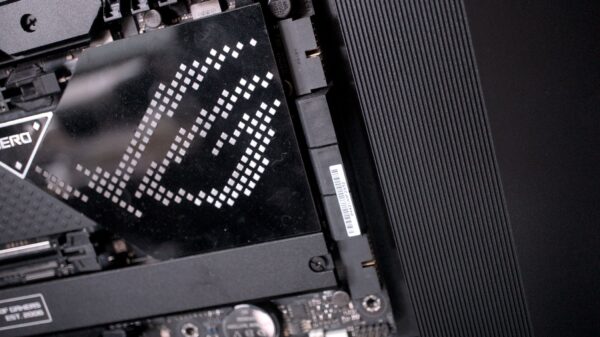UPDATE: Major motherboard manufacturers, including Asus, MSI, and Gigabyte, are facing backlash as new reports reveal their touted AI Overclocking features are little more than marketing gimmicks. The findings indicate these technologies merely automate basic overclocking scripts, lacking any true artificial intelligence capabilities.
In a landscape where July 2025 has seen a surge in AI-driven marketing, these revelations are urgent for tech enthusiasts and everyday users alike. The promise of enhanced performance through machine learning is being called out as mere hype, misleading consumers seeking advanced capabilities from their hardware.
When users enable AI overclocking in their BIOS, the process is far from sophisticated. It primarily involves reading basic data from the CPU and applying preset adjustments based on a limited database of known values. This method lacks the intelligence that genuine machine learning entails, as explained by industry experts. “What these features actually do is akin to using a programmable thermostat,” critics argue, highlighting the disparity between marketed capabilities and actual performance.
The implications for users are significant. With many CPUs already optimized for performance through built-in systems like Intel’s Turbo Boost and AMD’s Precision Boost, these new AI features may offer little additional benefit. Experts suggest that for those serious about overclocking, manual tuning remains the superior method.
“Real overclocking requires an understanding of individual chip characteristics,” said a tech analyst. “Automated systems apply conservative settings that may limit performance gains.” The latest data shows that many of these automated stress tests last under five minutes, failing to account for the complexities of sustained performance across various workloads.
Moreover, the “silicon lottery” — the variability in performance among CPUs from the same production batch — is not adequately considered by these automated systems. Enthusiasts know that true overclocking involves fine-tuning a chip’s unique voltage and frequency characteristics, a task these so-called AI tools are ill-equipped to handle.
Asus, MSI, and Gigabyte’s reliance on AI branding is seen as a desperate attempt to compete in a market increasingly saturated with high-performance options. While their engineers possess the expertise to innovate genuinely useful features, the current marketing strategy leans heavily on buzzwords rather than substantive advancements.
For consumers, the takeaway is clear: unless you are willing to dive deep into manual tuning, sticking with your CPU’s built-in performance features is likely the best path forward. As these developments unfold, the tech community is urged to scrutinize claims of AI enhancements critically and demand transparency from manufacturers.
In a landscape where technology rapidly evolves, understanding the capabilities and limitations of these features is crucial. As the industry navigates the intersection of marketing and engineering, consumers must remain informed to make the best choices for their computing needs.
Stay tuned for further updates as this story develops.







































































